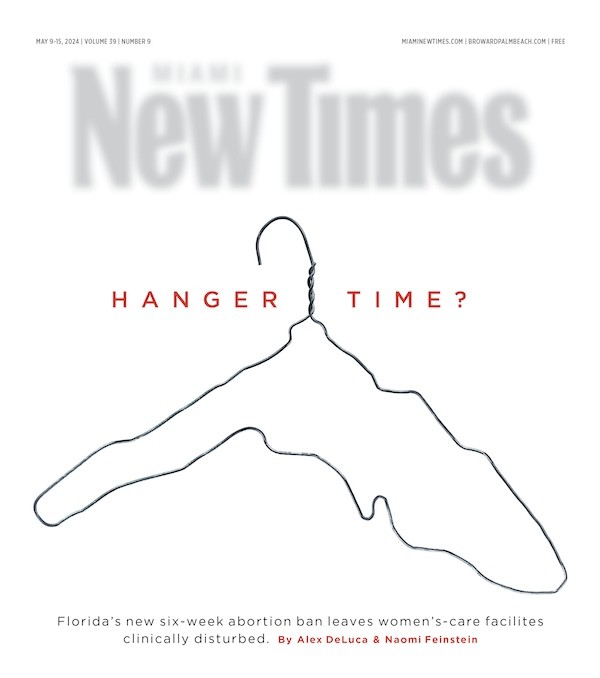Dean Wareham, guitarist and singer for Luna, never worries that public indifference will stand in the way of his success. In fact, to Wareham, success is merely keeping his music aloft despite commercial tradewinds and thunderstorms -- or the whims of record buyers. That special extra something that Luna brings to its songs is subdued enough to remain hidden through a second listening -- or even a third.
Even when they do emerge -- and they always do, usually hand-in-hand with one of Wareham's wry phrase turns and pinched nasal voice -- the band's well-concealed charms aren't at all mysterious. There's no need to parse influences. Luna will forever genuflect at the pew of Velvet Underground, with a serene yet intense approach to songcraft and Wareham's well-worn knapsack full of skewed non-sequiturs.
Content to never thrill but only casually enchant, Wareham relishes the journeyman role, making records and touring as if none of it matters to anyone but him. The public may well be pleased with Close Cover Before Striking, a new seven-song album likely to rank as the band's most rousing collection to date. It doesn't hurt that Striking begins with "Astronaut," the first song Luna has ever recorded with loops and overdubs. Bursting with circa-1986 Cure/New Order excitement, the song's sinewy bass biceps ripple under a pressurized stream of sequencers and Wareham's typically gnomic prowess:
"I wanna plug you in/I wanna get you things/Send you a pentagram/Feed you diazepam/I wanna play the game/I wanna live again/I wanna bend your spoons and make your silver shine/I'll wear a stylin' mustache/You'll wear a frozen smile..."
Sometimes steeped in television trivia and armchair academia, Wareham's lyrics resonate with obscure one-liners, just as they did in his first band, Galaxie 500. The new "Teenage Lightning" finds him claiming, "I can hypnotize a pancake/I can levitate the pope" delivered, as always, in his droopy, droll, seen-it-all monotone. Wareham is a Harvard graduate, as were his Galaxie 500 compatriots, Damon Krukowski (drums) and Naomi Yang (bass).
In those halcyon days (1988-1990), interviewers insisted on focusing on the Ivy League angle, as Galaxie 500 rode coattails into office as the postmaster general of indie rock. Some writers implied the three were rich kids out slumming. ("I do not have a trust fund," Wareham insists.) Today, the transplanted New Zealander-cum-quintessential New Yorker pronounces Nirvana as if it rhymes with Santana, and speaks in softly clipped, ironic sentences.
Instead of effete intellectualism or idealism, the trio eked out a purity of minimalism rarely equaled, because true to the ethic of the time, none of them knew how to play well -- Yang not even a note. This didn't stop Galaxie 500 from winning plentiful press adulation and a production hook-up from Kramer, who later perfected with Low the work he began on Today, On Fire, and This Is Our Music, Galaxie's troika of releases.
"In England, they're still mad at me about breaking up the band," Wareham laughs. "There's always five people in the crowd who want to hear Galaxie 500 songs." He may yet appease them. Luna's live album from 2000 includes a heated version of "Fourth of July," and lately, he reports, "Tugboat" has been hauled out of dry dock.
Soon after abandoning Galaxie 500 in 1991, Wareham began Luna with bassist Justin Harwood (ex-Chills) and drummer Stanley Demeski (ex-Feelies). Both men are now retired from the engine room. Demeski departed in 1996, citing a dislike of the road, and Harwood left in 1999, in time for ex-Belltower bassist Britta Phillips to come aboard and add a new flexibility on the instrument -- and sweet backing vocals too. Harwood moved back to his beach house in New Zealand, where he and his wife recently started a family.
"It's a drag to have people around if they don't want to be there," Wareham says, explaining that touring is the only way a group like Luna can make enough money to keep making an album every year. "You have to enjoy doing it for its own sake. We can't all stay home just because one person doesn't want to do something. Plus, it's actually kind of healthy to have some turnover." These changes, he admits, still cause stress. "In life, when you have great big decisions to make, you make them, and then you have regrets. But I think your instinct is usually the right thing."
The band stayed active through the '90s, but every summer, the Lollapalooza parade would skip a trip through Luna-town, not that Wareham and Co. cried into their cotton candy about it. Besides, he points out, kicking a beach ball back to a midafternoon outdoor audience never sounded like a very Luna thing to do: "We rock, I guess, but we don't jump up and down and work the crowd the way you have to. We're not a crowd pleaser."
Instead, the band made five albums for Elektra and toured with Lou Reed, the Sundays, and Cocteau Twins (those Scot etherealists loved Luna's guitar sound), although each record sold in modest quantities. After second guitarist Sean Eden joined following the first album, 1992's Lunapark, Luna began to fill out, to step away from that bare, empty aesthetic Wareham sculpted with Galaxie 500. Now, the idiosyncratic way Eden's guitar plays with Wareham's is Luna's signature, the two communicating and cavorting like twins via knowing sidelong glances and barely noticed nods.
Elektra passed on that fifth album, 1999's The Days of Our Nights, and Jericho, the Sire subsidiary that issued it, filed for bankruptcy soon after. A soundtrack for the 1998 Noah Baumbach film Mr. Jealousy sank and also remains unrecoverable. So began a search for new digs, making a stop at the Arena Rock Recording Company two years later for Live. 2002 saw the release of Romantica on the Jetset label, an affiliation that has continued on Close Cover Before Striking.
With a languid but faithful cover of Jagger/Richards' long-lost "Waiting on a Friend," Striking helps teach the kids a lesson: The Rolling Stones did not always suck, alleges Wareham. "[Tattoo You] was their last really great record. When you meet people who're, like, 18, they say, 'The Rolling Stones? Horrible!' Well, they weren't always that way." Striking's second cover represents the other side of the coin: Kraftwerk's immortal "Neon Lights." Flippant choices, maybe, but not as tongue in cheek as takes on "Sweet Child o' Mine" (released in 1999) and Zeppelin's "Dancin' Days," which Wareham cautions "will never make it out of the studio."
The dual-guitar thing gives Luna a magic quality, and inside of that, even within Wareham's way with a wah-wah pedal, is a remarkable sense of depth and complexity. Starting with 1995's Penthouse, this interplay steadily grew more layered and textured. Live especially benefits from the ferocious Eden/Wareham fisticuffs -- and from a punchy, pristine mix. You'd never expect a band like Luna to put forth a greatest-hits compilation or concert album (Live functions as both), but, as Wareham notes modestly, "It sounded too good not to. It's nice for me to be able to hear that, 'cause it always sounds like shit where I'm standing on stage."
Funny, out in the crowd, it never seems to come across that way. Each instrument is carefully measured, the solos unwind simply and unobtrusively, and every note is relaxed, uncramped. Luna is all about the big here and the long now, like that taffy-pull of color in the west just after sunset, stretching, twisting, and darkening as the day winds down. And in those everyday moments, the guitars seem to say, lie a palette of possibilities. This is how, time after time, Luna continues to break no new ground whatsoever. Yet after mining that same vein and sifting and refining the rich results, something lovely always remains.
"We got better at making records," opines Wareham, prefacing a long pause. "Or not. What do I know?"










